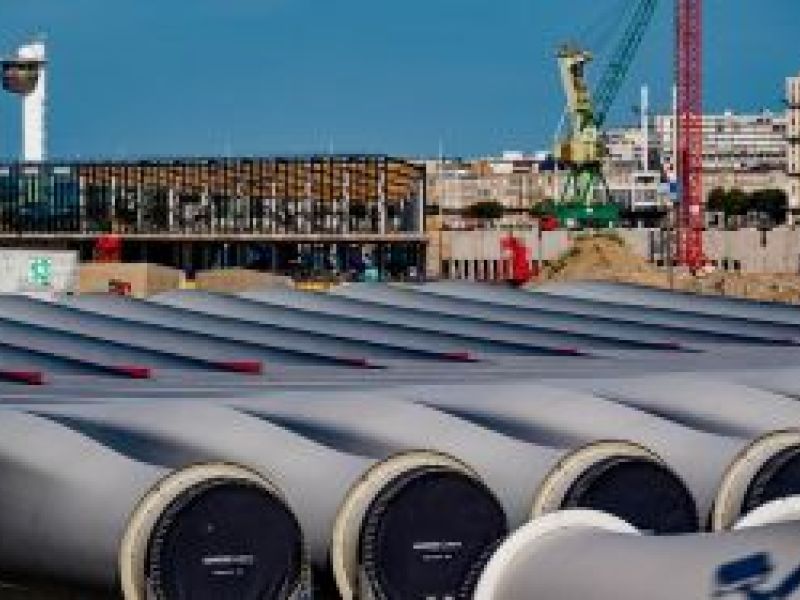In amongst the talk of tariffs and political panic, it’s easy to miss the success stories. There’s a major one in France at the moment, where plane manufacturer Airbus is flying high. The company is in an almost unprecedented boom period, with a real chance of establishing itself as the world leader in commercial aircraft design and manufacturing.
Yet despite this success—and that of other French companies like it—the country has been relatively muted in celebrating their success. Why is this exactly, and what can we learn from the success of Airbus, both about the French business landscape and the opportunities for other aerospace companies?
If it’s Boeing, I’m not going
One reason for the lack of attention on Airbus might be how well-publicised its rivals’ issues have been. Various travails over more than two decades have led to the decline of current and historic leader Boeing. Many track the company’s issues back to its takeover of competitor McDonnell Douglas over two decades ago, where much of the smaller company’s leadership team survived the merger. Company culture has suffered, with profits being put over engineering excellence and innovation, and the development of new products stagnating.
The real trouble started when Airbus released the A320neo, a highly fuel efficient competitor to the Boeing 737 NG, almost out of the blue. Boeing was left scrambling to compete, and ended up releasing a rehash of an existing design with bigger, more efficient engines. This was the 737 MAX, which suffered a famous safety issue that led to two deadly crashes. The organisation’s issues have only deepened since then, with reports of poor quality control in its supply chain, parts of which it had previously sold to third-parties, only to contract the same work back out to them.
Related article: How to start a business in France in 8 steps
By contrast, Airbus has been a vision of calm and competency throughout. While it hasn’t been without issues—and its approach to aircraft design (making heavy use of computer automation) isn’t for everyone—it’s otherwise an extraordinary success story, and a predominantly French one. While operating across Europe, Asia and North America, Airbus is still run from its founding city of Toulouse, and undertakes much of its manufacturing in the country, as well as being floated on the Paris Stock Exchange.
It’s far from the only French aerospace success story, either. Dassault is a major manufacturer of military aircraft, with operators of its modern fighter planes including India, Greece, the UAE, Croatia, and France itself. The European Space Agency meanwhile is headquartered in Paris, with France being its second biggest contributor. Major aerospace and defence company Safran is also French, and both it and Airbus jointly operate ArianeGroup, which develops launch vehicles for the ESA’s satellites. Alongside its thriving automotive industry, France is one of the world’s great manufacturing and engineering hubs.
Vive Air France
So why isn’t this celebrated more? Believe it or not, it may partly be out of embarrassment. Boeing and many other companies in the aerospace industry produce vehicles for military use, and this side of the companies isn’t something that some people wish to openly celebrate. But the current climate seems primed for this to shift, as Europe looks to step up and assume some of the United States’ mantle for defending itself and its interests.
Another part may be simple complacency. Many of the most successful aerospace companies in France have existed since before the Second World War, and feel like a part of the furniture. It’s almost taken for granted that France is good at this, to the extent that nobody trumpets it. Some people might also argue that advertising aerospace successes doesn’t benefit other people much.
Related article: The French Tech Startup Ecosystem
As we’ve already mentioned, some of these are century-old companies, and the landscape is well established. How much is there to gain from boasting about them? But the reality of the industry and the supply chains that drive it is that these companies don’t operate in a vacuum. If cars require hundreds of companies to design and manufacture the many parts that go into them, an airplane requires many more.
Aerospace for startups
Contrary to the notion that aerospace is an impenetrable field dominated by century-old firms, the reality is that these companies rely on vast and complex supply chains. The production of an aircraft involves thousands of components, from seats and entertainment systems to intricate wiring and advanced avionics. Many of these components are sourced externally, offering immense opportunities for smaller French businesses. The more of these that can be created in France, the more beneficial it is for companies like Airbus—and the French economy in general.
French companies, including small and medium-sized enterprises, have a real potential to integrate into these supply chains by specialising in a few key areas. Manufacturing, software development, materials science, and logistics are all fundamental to aerospace projects, and areas where startups can bring new ideas to the table. It’s also an industry where even startups can find a foothold by focussing on cutting-edge technology. AI-powered maintenance systems, lightweight composite materials, and next-generation battery technologies all represent growing markets within the industry, and areas of focus for the next generation of passenger aircraft.
The French government has also consistently supported innovation in aerospace through grants, tax incentives, and public-private partnerships. Programs like the France Relance recovery plan and initiatives from Bpifrance offer financial backing for innovative startups, and a way to realise your ambitions in aerospace. Regional economic clusters like Aerospace Valley in Toulouse offer additional support, enabling you to collaborate with likeminded entrepreneurs, sharing knowledge and gaining access to skilled workers and key connections.
Related article: The best cities for startups in France
As sustainability becomes a key focus for the aerospace sector, there’s also a growing demand for innovation in alternative fuels, and better ways to produce them. Electric planes are now a reality on a small scale, while sustainable aviation fuel and hydrogen are both promising avenues for larger aircraft. Finding a way to make these more cheaply and sustainably at scale is one of the great challenges in modern aviation, and a major opportunity for the right business.
The aerospace industry is one of France’s great strengths, and it’s something we should shout about, particularly at a time when exports are under threat. It’s also a sector in which there is ample room for France to assert its dominance—and nurture a new generation of innovative aerospace startups.







